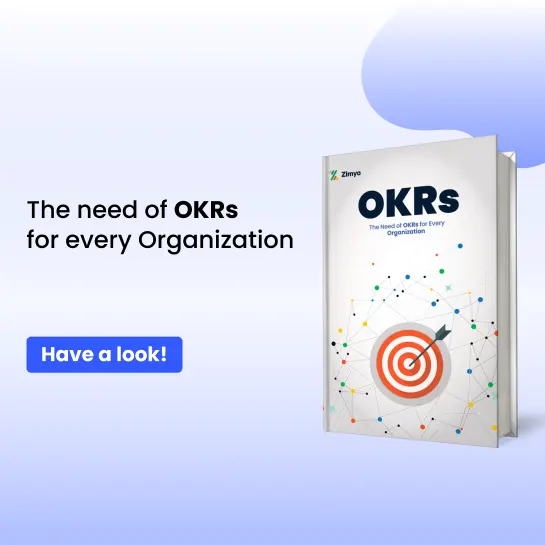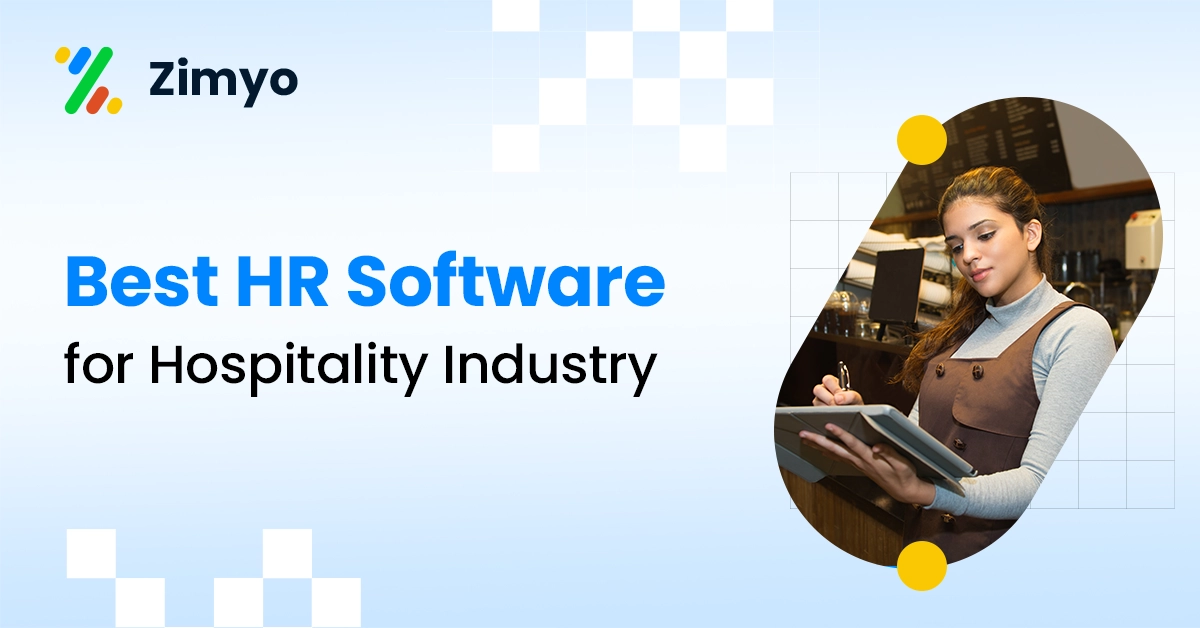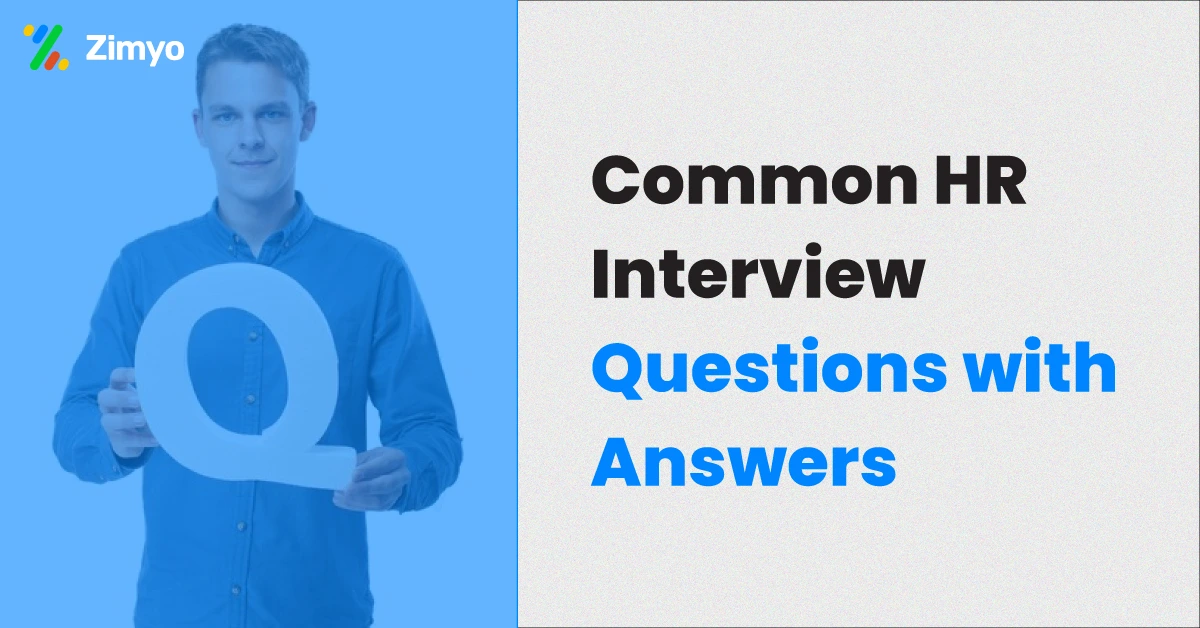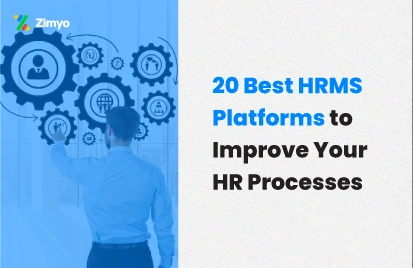Behind every successful company, there’s more than just a brilliant product or a visionary leader; there’s a strong team of people holding it all together. But people don’t manage themselves. And that’s where Human Resource Management (HRM) comes in.
Whether it’s a growing startup trying to hire its first employees or a large organization looking to improve performance and retain talent, the way people are managed can make or break a business. HRM is no longer just an administrative function buried under piles of paperwork; it’s a strategic driver of productivity, culture, and long-term business success.
In today’s dynamic and competitive landscape, where businesses are rapidly evolving and employee expectations are shifting, understanding the importance of HRM has become more critical than ever.
This blog will take you through what HRM truly means, why it matters to every business – big or small – and how it touches every aspect of the workplace, from hiring to retirement.
What is Human Resource Management (HRM)?
Human Resource Management (HRM) is the art and science of managing people at work. It involves creating systems, policies, and processes that help organizations attract, develop, retain, and maximize the potential of their workforce both for the sake of themselves and their employees.
In simpler terms, HRM is about:
- Finding the right people for the right roles
- Ensuring they’re trained and supported
- Helping them grow in their careers
- Keeping them happy, healthy, and motivated
- Ensuring all of this is done legally and fairly
Unlike traditional perceptions, HRM isn’t limited to handling resumes or organizing team outings. It’s a strategic function that aligns the company’s human capital with its long-term goals.
Now let’s look at what a modern HRM system typically includes:
Core Functions of HRM:
- Recruitment & Talent Acquisition: Finding skilled and culturally-aligned candidates
- Onboarding & Orientation: Integrating new employees smoothly
- Training & Development: Upskilling employees for current and future roles
- Performance Management: Tracking and enhancing employee output
- Compensation & Benefits: Managing fair pay, bonuses, and perks
- Compliance & Legal: Ensuring adherence to labor laws and company policies
- Employee Engagement & Culture: Building a positive and inclusive work environment
- Offboarding: Managing exits with professionalism and feedback
With that strong foundation in place, let’s now explore the real-world importance of HRM in modern organizations.
The Importance of HRM in an Organization
Human Resource Management is not just a department; it’s the engine that keeps the people part of the business running smoothly. Let’s dive deeper into why HRM is so vital, especially in the context of growing startups, SMEs, and large enterprises in India.
1. Strategic Talent Acquisition – Getting the Right People Onboard
One bad hire can derail a team, while the right hire can drive innovation and productivity. HRM ensures the organization follows structured recruitment strategies, background checks, and interview assessments to find the best fit.
Example: A logistics startup hires a tech lead through a robust HR screening process, avoiding a mismatch that could’ve cost them months in development delays.
2. Effective Onboarding – Creating a Lasting First Impression
Onboarding is more than paperwork – it sets the tone for the employee’s journey. HRM designs welcoming experiences that help new hires integrate into the team, culture, and tools.
Why it matters: Employees who experience structured onboarding are 69% more likely to stay for at least three years (SHRM report).
HRM identifies skill gaps and creates upskilling programs, mentorships, and cross-functional training. This ensures employees grow alongside the organization.
Example: An HR executive organizes regular Excel and analytics workshops, helping the sales team automate reporting and save hours each week.
4. Performance Management and Goal Alignment
Without clear goals, employees drift. HRM uses performance appraisal systems, KPIs, and regular check-ins to align individual work with company objectives.
Example: A digital marketing associate gets monthly feedback through OKRs (Objectives & Key Results), which helps them stay on track toward lead generation targets.
HRM is responsible for creating transparent, equitable, and competitive salary structures.
- Conducts market benchmarking
- Ensures internal pay parity
- Administers bonuses and benefits fairly
Why it’s important: Fair pay increases trust and reduces attrition.
Check Out Our Blog On Salary As Per Industry Structure
6. Benefits Administration – Beyond the Paycheck
Modern employees expect more than just a salary. HRM oversees health insurance, parental leave, wellness programs, flexible work options, and more.
Example: Zimyo’s HR team offers optional menstrual leave, which boosts employee satisfaction and employer branding.
India has a complex web of labor laws (e.g., PF, ESIC, Wage Code, Maternity Benefit Act). HRM ensures the company adheres to these to avoid penalties and reputational damage.
Example: An HRMS tool like Zimyo automatically calculates PF & ESI contributions and generates statutory reports – saving hours of manual work.
A proactive HR team supports mental health, stress management, and work-life balance, especially in today’s hybrid or remote setups.
Why it matters: Happier employees are more productive and creative.
Example: Monthly wellness check-ins and counseling tie-ups help reduce burnout in high-pressure roles like customer support.
Check Our Blog On Managing Stress At Workplace
9. Building and Preserving Workplace Culture
HRM plays a central role in defining and reinforcing the values, tone, and culture of the workplace. Whether it’s through town halls, DEI initiatives, or feedback loops, HR keeps the company culture alive.
Example: Regular “culture connects” at Zimyo allow employees across functions to share wins, vent issues, and bond beyond tasks.
10. Conflict Resolution and Grievance Redressal
Conflicts are inevitable, but how they’re handled determines team health. HRM creates clear policies for grievance redressal, POSH compliance, and unbiased mediation.
Why it’s important: A toxic, unresolved work environment can lead to silent quitting and high turnover.
11. Succession Planning and Internal Mobility
HRM identifies high-potential employees and builds career progression plans. It ensures leadership pipelines are nurtured, especially in fast-scaling companies.
Example: Promoting a junior HR associate to senior HRBP after grooming them for months internally boosts morale and retention.
12. Data-Driven Decision Making Through HR Tech
With modern HRMS tools, HRM can now track:
- Absenteeism trends
- Attrition drivers
- Salary benchmarking
- Employee satisfaction scores
How it helps: Management makes informed decisions using real-time HR dashboards.
Example: If data shows a spike in attrition after appraisals, HR can review the feedback and revise performance frameworks.
Why Businesses Can’t Afford to Ignore HRM
Whether you’re a 10-member startup or a 500+ employee enterprise, HRM touches on every stage of the employee’s lifecycle. It’s the difference between building a functioning business and a thriving workplace.
Ignoring HRM can result in:
- High turnover
- Legal issues
- Low morale
- Poor hiring decisions
- Stagnant growth
Whereas investing in HRM leads to:
- Engaged employees
- Lower costs from rehiring
- Smoother operations
- Positive brand reputation
Role of HR Software in Modern HR Management
With technological advancements, HR software and HRMS solutions have revolutionized human resource management. Benefits of HRMS software is that they automate HR processes, improve data accuracy, and enhance decision-making, making HR operations more efficient.
The Role of Technology in Human Resource Management
In the digital age, HRM is no longer limited to paperwork and manual processes. With advancements in technology, HR has become more efficient, automated, and data-driven. HRMS (Human Resource Management System) has upgraded the way businesses manage their workforce.
1. Automation
HR software automates repetitive tasks such as payroll processing, attendance tracking, and leave management. This reduces human error and frees up valuable time for strategic planning.
2. Data Management
With HRMS, HR managers can easily manage and access employee data. Resultantly, ensuring compliance with labor laws and maintaining accuracy in reporting.
3. Employee Engagement
A good HRMS helps track employee engagement levels, providing insights into employee satisfaction and areas that need improvement.
Corporate Challenges Overcome by HRM
While HR management is essential, it comes with its own set of HR challenges. Managing people is complex, and these challenges must be addressed for business success. Here are some common challenges:
- Employee Retention: How do you ensure top talent stays with your company? HR management offers strategies such as career development programs and a positive work environment.
- Compliance: Navigating labor laws can be tricky. HRMS helps businesses stay compliant with regulations, reducing the risk of legal issues.
- Diversity & Inclusion: Promoting a diverse and inclusive workplace is critical. HR management implements programs that promote respect and equality among employees.
Final Thoughts
The importance of HRM goes beyond recruitment and salary management. It’s a strategic driver of productivity, culture, compliance, and sustainable growth.
As businesses evolve, so must their HR practices, from manual spreadsheets to AI-powered HRMS solutions.
Want to see how HRM can transform your company?
Try Zimyo’s modern HR software to automate payroll, track attendance, manage compliance, and empower your employees – all in one place.
FAQs (Frequently Asked Questions)
The major intention of HRM is to protect the organization and its employees from any unethical exploit.
The major functions of HRM are recruitment, training and development, job review, career planning etc.
Human resource management system allows you to organize your workforce by determining roles and teams or departments.










